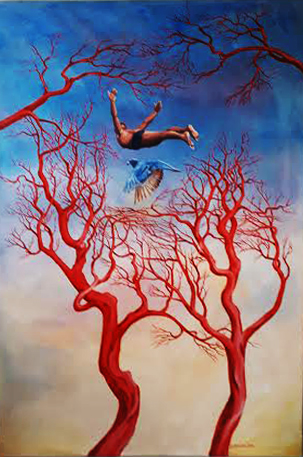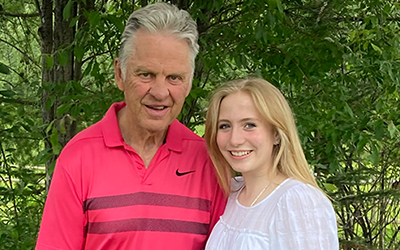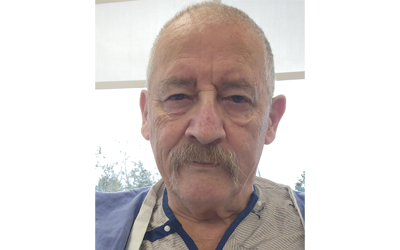David Stevens has been involved in art all his life, on both a personal and professional level. He was an art teacher for many decades, starting his career at Matsqui Penitentiary in Abbotsford, and then teaching high school students for 30 years in Delta.
David received the British Columbia Art Teacher of the Year award in 2000, and says a high point of his career was having three of his former students represented in the Vancouver Art Gallery. While his work has never been shown there, he has had dozens of exhibitions across the Lower Mainland and has tried to maintain an ambitious pace of an art show every year. This has proven quite a challenge recently, as he and his wife’s five children have given them five beautiful grandchildren.
Over the years, David has featured a variety of themes in his art, ranging from mechanical insects to rockface erosion. Currently, the Arbutus tree from the West Coast of Canada provides him with inspiration. David sees the spectacular trees as symbolic of humanity; in fact, people who see his work sometimes notice human anatomy, such as arteries, veins, and capillaries, before they see the branches of the tree.
In 2020, David was diagnosed with Parkinson’s disease (PD). His symptoms began with a sleep disorder called rapid eye movement (REM) sleep behaviour disorder, which resulted in him waking up fighting or having launched himself out of bed.
After years of struggling with sleep disturbances, David went to the University of British Columbia’s sleep clinic, where he learned about dementia and Parkison’s as possible causes of these bizarre and alarming occurrences. He realized he was experiencing 13 out of 16 common symptoms when he first looked up PD.
After being formally diagnosed, the weight of the disease settled on him. “The only experience I had with Parkinson’s was my wife’s uncle, who suffered greatly. My imagination took me places I was not prepared for,” David says. “I thought I was on a fast track to death.”
Fortunately, his wife and one of his biggest supporters, Diane, reassured him that no one knew what Parkinson’s held in store. She was right – even though nearly half of people with PD experience tremor, David does not. As a result, his ability to create beautiful, intricate art pieces has not been impacted. However, he finds he has to wrestle with his motivation to get started on art these days, and experiences cognitive issues, which have made socializing more difficult.
Despite the fact that sometimes David pictures himself in the future and feels overwhelmed, he continues on every day, finding inspiration from those who are further along on the path, yet keep going. “The days have passed when I worried about contributing to the history of art or making a living as an artist,” he says. “Now, I have to find enjoyment from simply creating.”







